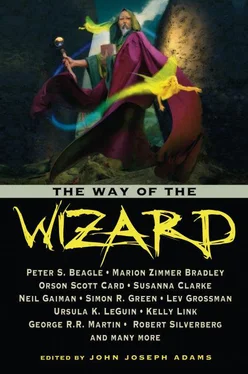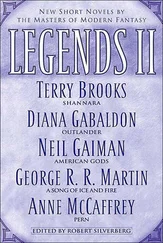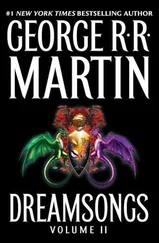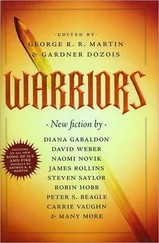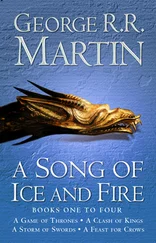I’m not sure why I’m crying, all I feel is numb. Her finger-threads reach out and catch my tears before they can spill, as if thirsty for them. “Think carefully.”
I do. I think about running hot and wild through the woods, devouring golden mushrooms, nuts, sweet fruits of trees. Sleek and powerful, seeking pleasure after pleasure, rolling in the damp peat, the cold river, the loamy underwood. Nothing between me and my sweet earth. No separation, no worries, no confusion, no sense of right or wrong, no memory. No memory . The phrase sticks and repeats in my mind. No memory. What Elpenor longed for. But do I?
“I won’t remember being human?” I say. “I won’t remember my friend?”
“True. Beasts do not have human memories.” Odysseus stirs in the bed beside her, his darkness shifting like a small mountain. “You must choose now, mortal. Odysseus will wake soon, and he will kill you outright should he find you here. If you want death, do nothing. But if you seek life, you must choose. You can choose to be a pig, or you can choose to be a man, but you must choose now .”
I hesitate.
“Your hesitation chooses for you. Good-bye and good-bye to your friend.”
“His name was Elp—”
Before I finish his name, she mumbles some words. My skin shivers and shrinks, stretches and tears, and all the time her finger-threads cradle me, keeping me paralyzed as wave after wave of emotion and memory and longing hit. In her strange woven-hands, she lifts me out the window and down towards the stone courtyard. Her hands unfurl like living green vines.
I gasp for breath, as I glimpse the heady wildness soon to be mine. Smells so rich they’re food in my mouth: the thick honey of crushed flowers; the salt air needles pricking the back of my throat; the forest’s mushroom succulence begging me to plunge and rip and flee into its darkness.
The air is cold candy to my skin; my blood rises hot in response. I struggle violently against Circe’s hold, thrashing towards the sweet forgetful earth beckoning me.
I smell freedom.
I smell oblivion.
I smell now .
I taste hot salt-sweet blood; I see the howling eyes of Circe’s beasts; I hear the dull click of my hooves against stone; the world overflows with now and now and now .
Orson Scott Cardis the best-selling author of more than forty novels, including Ender’s Game , which was a winner of both the Hugo and Nebula Awards. The sequel, Speaker for the Dead , also won both awards, making Card the only author to have captured science fiction’s two most coveted prizes in consecutive years. His most recent books include another entry in the Enderverse, Ender in Exile , and a sequel to his near-future political thriller Empire, Hidden Empire . He is currently working on The Lost Gates , the first volume of a new fantasy series.
One of Card’s recurrent themes in his fiction is precocious children whose superior intellect isolates them from their peers and brings them into conflict with dull-witted adult authorities, and whose exceptional abilities destine them for world-changing actions about which they may be reluctant or ignorant. (Most famously in Ender’s Game and its many sequels and companion novels.)
And in today’s storytelling landscape, in which parents are all too often kidnapped, deceased, or otherwise out of the picture — all the better to free up the kids to go adventuring — Card is resolute about writing about family and community and the ways in which those things shape us.
Card’s 2005 novel Magic Street is one such story, set in the Baldwin Hills section of Los Angeles. It tells the tale of a very unusual boy named Mack Street who must face a lurking evil that has invaded his neighborhood. (A story set in this milieu, “Waterbaby,” is available on the author’s website.)
Our next story also involves many of Card’s storytelling signatures — an exceptionally bright young man, some very strange abilities, and a special destiny.
AP Chemistry was a complete scam and Jam Fisher knew it. Riddle High School was the cesspool of the county school system. Somebody in the superintendent’s office came up with a completely logical solution: Since statistics proved that high schools with the highest enrollment in Advanced Placement courses showed the highest rates of graduation and college placement, they would make all the students at Riddle High take AP courses.
How dumb do you have to be to believe something like that? Dumb enough, apparently, to go to college, get an Ed.D., and then work in the Riddle County School System.
Jam was one of the few kids at Riddle who would have taken AP Chemistry anyway. But now, instead of studying with other kids who were serious about learning something, he was stuck in a class with a bunch of goof-offs, dumbasses, and idiots.
Which he knew wasn’t fair. They weren’t actually dumb, they were simply out of their depth. They didn’t have a college-grad Mom like Jam did, or have a small shelf of books in the living room which were written by relatives (but read by almost nobody).
Fair or not, the result was predictable. In order to have a hope of teaching anybody anything, they were dumbing down the curriculum, and so Jam would have to work twice as hard to educate himself in order to do decently on the AP tests. Mom would go ballistic if he didn’t ace them all and come out of high school with a whole year of college credits. “If you don’t have a full ride scholarship you’ll be at Riddle Tech and that means you’ll be qualified — barely — for janitorial work.”
And here he was on the first day of class in his junior year, listening to some overly-chummy teacher making chemistry into a joke.
“What I have here,” said Mr. Laudon, “is a philosopher’s stone. Supposedly it could change any common metal into gold, back in the days of alchemy.” He handed it to Amahl Piercey in the first row. “So before we go any further, I want every one of you to hold it — squeeze it, taste it, stick it up your nose, I don’t care—”
“If I’m spose to taste it, I don’t want it up Amahl’s nose,” said Ceena Robles. Which provoked laughter. Meanwhile, Amahl, not much of a clown, had merely squeezed it, shrugged, and passed it back.
The stone was passed hand to hand up and down the rows. Jam saw that it looked like amber — yellowy and translucent. But nobody seemed to notice anything special about it, till it got to Rhonda Jones. She yelped when she got it handed to her and dropped it on the floor. It rolled crookedly under another desk.
“It burned me!” she said.
Shocked you, you mean, thought Jam. Amber builds up an electric charge. That’s the trick Mr. Laudon must mean to play on us.
But Jam kept his thoughts to himself. The last thing he needed was to have Laudon as an enemy. He’d done a year where he antagonized a teacher and it wasn’t fun — or good for the grades.
“Pick it up,” said Laudon. “No, not you, her. The one who dropped it.”
“My name is Rhonda,” she said, “and I’m not picking it up.”
“Rhonda.” Laudon scanned the roll sheet. “Jones. Yes you will pick it up, and now, and squeeze it tightly.”
Rhonda got that stubborn look and folded her arms across her chest.
And with a resigned feeling, Jam spoke up to take the heat off her. “Is this an experiment or something?” asked Jam.
Laudon glared at him. Good start, Jam. “I’m talking to Miz Jones here.”
“I’m just wondering what’s so important,” said Jam. “It’s not as if there’s such a thing as a philosopher’s stone. It’s just amber that builds up an electric charge and it shocked her when she got it.”
Читать дальше
